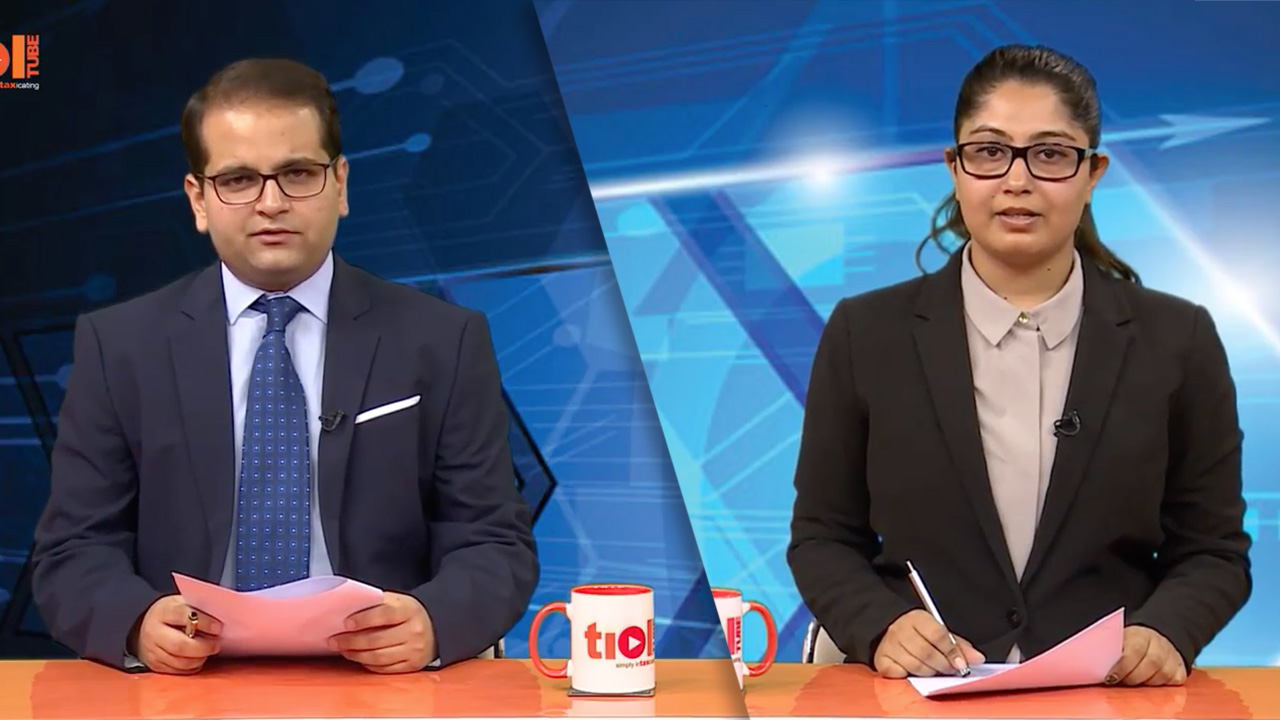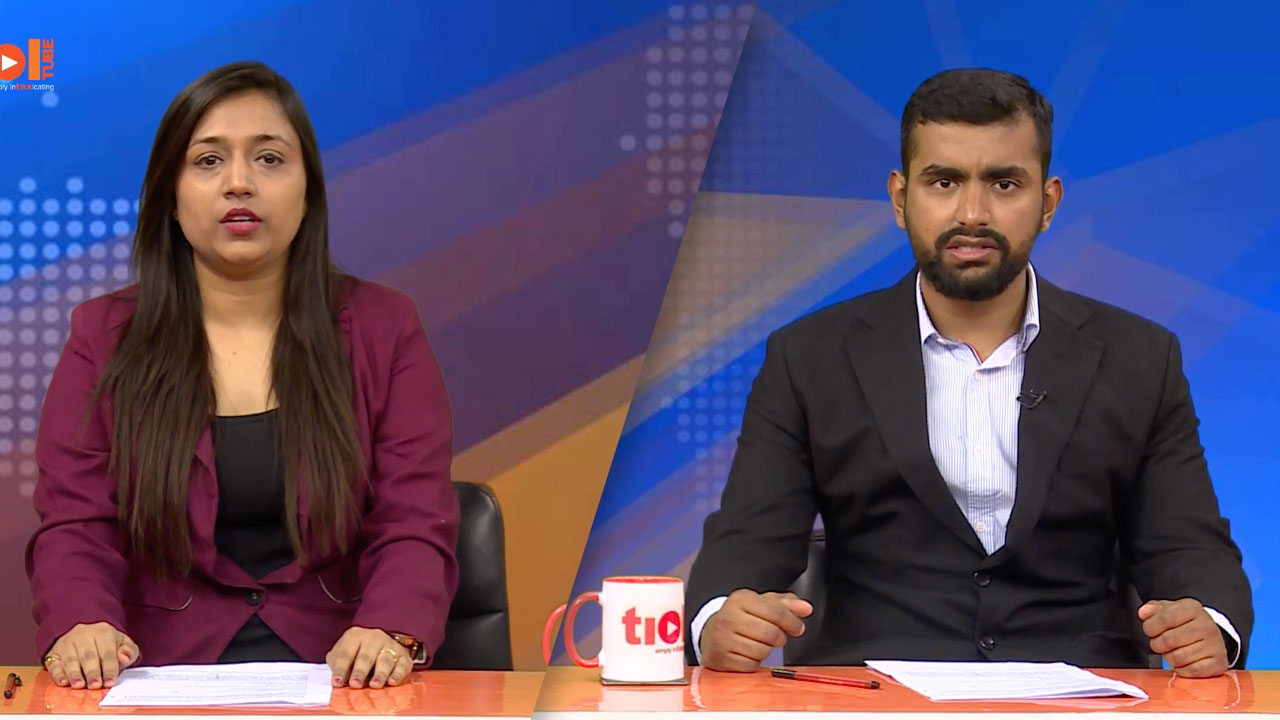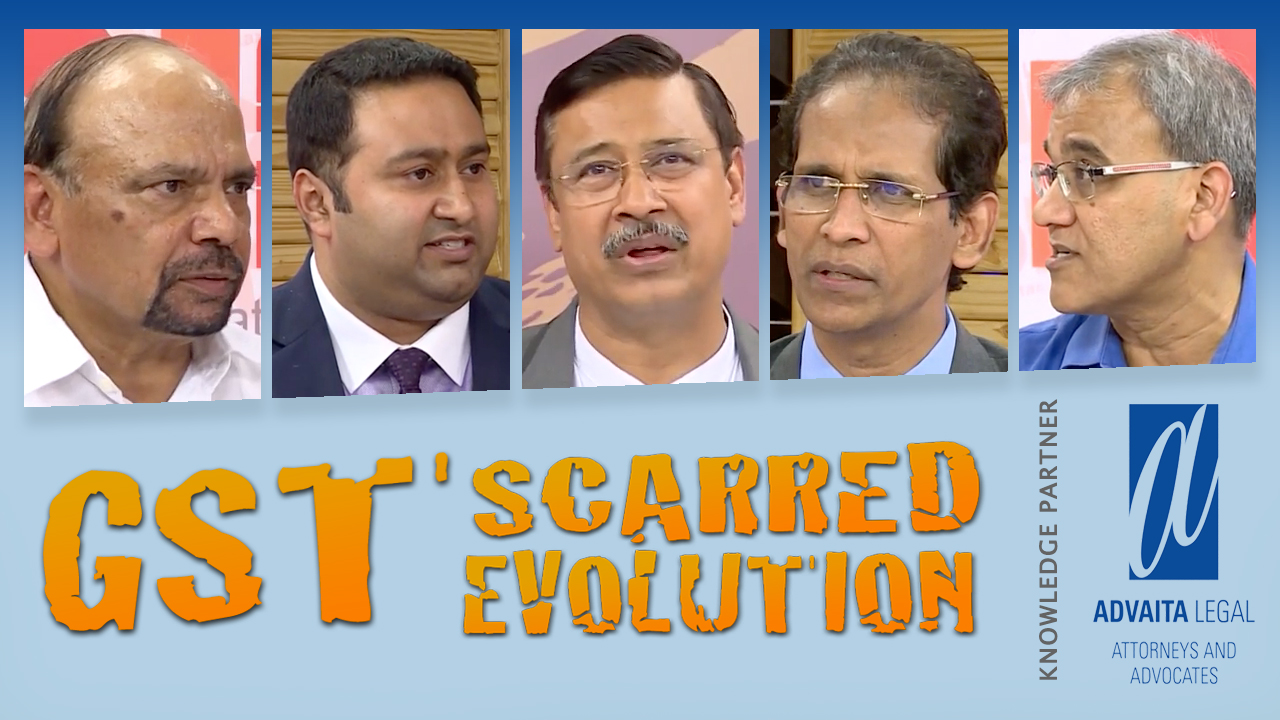SERVICE TAX
2018-TIOL-3357-CESTAT-BANG
Corporation Bank Vs CCE & ST
ST - The assessee is a public sector bank having branches all over India and the Service Tax provisions were made applicable for the first time to the banks w.e.f. 10.09.2004 - They have filed the ST3 returns - On the basis of which, Revenue has asked the Bank to furnish further information - SCN was issued for irregular availment of CENVAT credit by invoking the extended period and proposing to levy penalties under Sections 76, 77 & 78 - The Commissioner in impugned order has found that the bank acted bona fidely as it was first year of Service Tax implementation and has taken a lenient view by not imposing penalties by invoking the provisions of Section 80 - Once, the Commissioner has found the conduct of assessee bona fide and there was a reasonable cause for the act of assessee, then in view of various decisions, extended period of limitation cannot be invoked - In the present case, period involved is from 10.09.2004 to 31.03.2005 whereas SCN was issued on 12.07.2006 which is beyond the normal period of one year as prescribed under law - Assessee is a Government of India enterprise and therefore the allegation of suppression cannot be made - The impugned order is not sustainable in law in view of the various judicial decisions - By following the ratios of the same, impugned order set aside: CESTAT
- Appeal allowed: BANGALORE CESTAT
2018-TIOL-3356-CESTAT-BANG
CCE, C & ST Vs Yeskay Construction
ST - The assessee company is engaged in constructing residential complexes - It also acted as sub-contractor for various builders - The materials like Steel & Cement were supplied free of charge by the builders & their contract value did not include cost of Cement & Steel - When the Construction of Complex service became taxable, the assessee paid duty with EC on the total receipts from such services provided during the relevant period - In its ST-3 returns for the such period, the assessee claimed exemption of 67% of gross taxable value - However, the Department alleged short-payment of duty & raised duty demand with interest while also imposing penalties u/s 76, 77 & 78 of the Finance Act 1994 - On appeal, the Commr.(A) set aside the demands on grounds that sub-contractor need not pay duty where it is already paid by the main contractor.
Held: The present case is covered squarely by the Apex Court's decision in CCE &C, Kerala Vs. Larsen & Toubro Limited wherein it was held that works contract will not attract service tax prior to 01/06/2007 - The period involves in the present case precedes such date - The assessee is also covered by the provisions of Circular No. 108/02/2009-ST dt. 29/01/2009 which clarify that service rendered by sub-contractor to main contractor will not attract service tax where the latter paid service tax on the work done by the former - Hence the demands raised are liable to be set aside: CESTAT (Para 2,7)
- Revenue's appeal dismissed: BANGALORE CESTAT
2018-TIOL-3355-CESTAT-BANG
CC, CE & ST Vs Warrier's Hospital And Panchakarma Centre
ST - The assessee manufactures herbal hair oil and massage oil - During the period of dispute, the Department claimed that the assessee was not registered and that it did not pay duty even after crossing the SSI exemption limit - The Department also sought to classify the Hair Oil under CETA Heading 3305 & Massage Oil under heading 3304 respectively - Duty demands were raised & penalties were imposed on the assessee - On appeal, the Commr.(A) held that both products classified as drugs and cosmetics under Chapter 30 of CETA, since they fulfiled the conditions laid down by the Apex Court in Dabur India Vs. C.C.E., namely that all ingredients were listed in Ayurvedic textbooks, the assessee held license from Drug Controller & that it procured prescription from Ayurvedic doctors - As the Revenue could not produce evidence that the items in questions were not understood as medicaments in common parlance, the demands were set aside.
Held: The issue at hand stands settled in favor of the assessee vide several decisions of the Apex Court, such as Dabur India Ltd. Vs. CCE, Jamshedpur wherein hair oil was held as an Ayurvedic product, or Puma Ayurvedic Herbal Pvt. Ltd. Vs. CCE, Nagpur wherein it was treated as Ayurvedic medicine - As such the Department failed to put forth any new facts or convincing, cogent reasons to differ with the findings of the Commr.(A) - Thus the O-i-A merits being sustained: CESTAT (Para 1,2,7,8)
- Revenue's appeal dismissed: BANGALORE CESTAT
CENTRAL EXCISE
2018-TIOL-2352-HC-MUM-CX + Case Story
CCE Vs Rajaram Bapu Sahakari Sakhar Karkhana Ltd
CX - Tribunal was justified in allowing CENVAT Credit on the machines/equipments of a sugar plant - Issue whether CENVAT Credit of the duty paid on machines/equipments used in setting up a immovable property is available to the assessee in whose factory the immovable property is set up has been held in the affirmative by the Tribunal in Commissioner of Central Excise v/s. JSW Ispat Steel Ltd. - 2013-TIOL-1758-CESTAT-MUM - When the show cause notice itself proceeded on the basis that the subject equipments/machines do fall within the definition of capital goods as given in the CCR, 2002, therefore, the decision in Bharti Airtel ( 2014-TIOL-1452-HC-MUM-ST ) is inapplicable - In an identical issue that arose before the Tribunal in JSW Ispat ( 2013-TIOL-1758-CESTAT-MUM ) and which decision of the Tribunal was on all fours with the present facts and was accepted by the Central Board of Indirect Taxes & Customs on the ground that the same is legal and proper, therefore, it is not understood as to why the Revenue was agitating this issue: High Court [para 21, 23, 24] CX - Rule of law prevailing in the country is one of the key elements to determine ease of doing business - The Rule of law inter alia ensures absence of arbitraries in taking decisions, which would mean equal applicability of law to all concerned - Where at the highest level i.e. at the level of the Central Board of Indirect Taxes and Customs, the Revenue has accepted a particular view on a pure question of law, then in all such cases, the Revenue should withdraw the show cause notices and/or pending proceedings - This would bring certainty in the minds of the trade as well as the Department and lead to reduction of litigation - substantial question of law answered in the affirmative i.e. in favour of the Respondent-Assessee and against the Appellant-Revenue - Revenue appeal dismissed: High Court [para 22] - Appeal dismissed : BOMBAY HIGH COURT
2018-TIOL-3354-CESTAT-ALL
K K Tobacco Company Vs CCE, C & ST
CX - The first appellant is a company engaged in manufacture of Pan Samagri - The third appellant is the proprietor of a unit engaged in manufacturing sweet supari - The second appellant is the brother of the third appellant as well as the proprietor of the first appellant company - The premises of the first appellant were searched by the Department whereupon certain quantity of Pan Samagri was found in excess of the recorded stock - The business and residential premises of the third appellant were searched too, whereupon several pouch packing, sealing & other machines were found - Certain quantity of desi pan samagri pouches were found too, bearing the brand name of the first appellant company - A go-down nearby was searched too, where some quantity of raw material was found - All these goods were detained under the belief that they were liable for confiscation - The Department further alleged clandestine removal and imposed duty demand on the first appellant with equivalent penalty u/s 11AC r/w Rule 25 of CER 2002 - Personal penalties were also imposed on the other two appellants under Rule 26 of CER 2002.
Held: Admittedly, the goods manufactured by the first appellant, namely Desi Pan Samagri, bearing 'Banarsi Ashiq' brand are not notified goods as per the notifications u/s 3A of the Act - While the adjudicating authority did not refer to Section 3A, the duty demanded is based on the production capacity-based levy - The same is untenable & must be set aside: CESTAT (Para 3-8,17)
- Assessees' appeals allowed: ALLAHABAD CESTAT
2018-TIOL-3353-CESTAT-AHM
Indian Oil Corporation Ltd Vs CCE & ST
CX - Assessee is engaged in manufacture of various petroleum products - During scrutiny of record, department noticed that assessee determined the interface quantity of Superior Kerosene Oil (SKO) which was supplied through pipeline with Motor Spirit (MS) and High Speed Diesel (HSD) - The case of department is that the assessee, instead of paying excise duty on interface quantity of SKO as per rate prevalent for SKO, they should have paid excise duty higher of the two duties, after determining the duty payable on SKO and duty payable on MS/HSD - while clearing the goods, assessee have cleared from the factory quantities of MS, HSD and SKO separately - Since all the three goods are supplied through a pipeline, the SKO get mixed with either MS or HSD - The goods cleared from the factory is MS/HSD and SKO - Accordingly, the duty on these products is payable as per price of respective product prevailing at the time of removal of goods - As regards MS and HSD, the duty was paid on transaction value - As regards SKO, since the same was not sold, duty was paid on prevailing price of SKO on the basis of sale price prevailing for SKO naturally which is higher than the price of SKO sold under Public Distribution System, therefore, the correct price was adopted by assessee while clearing the interface quantity of SKO - The sole reliance of the Adjudicating Authority is on the Board Circular dated 22.02.2002 - The Circular suggests that even on clearance of SKO, the price of HSD/MS should be applied - However, this proposal of the Board Circular does not flow from any statutory provision - As assessee have correctly applied the price of respective goods cleared from the factory at the time of removal, therefore, Tribunal do not find any support of any statutory provisions in Board Circular.
As regards the issue that after removal of goods, intermixing of SKO with MS/HSD amounts to manufacture, there is no charge in SCN that the activity of supplying HSD/MS with interface SKO amounts to manufacture - Therefore, adjudication order travelled beyond the scope of SCN which is not permissible in law - It is clear that activity specified in said clause (iii) will amount to manufacture only in respect of the goods specified under Third schedule - It is undisputed that the products of assessee are not specified under third schedule, therefore, whatever activity mentioned in clause (iii) shall not apply to the goods which are not specified in Third schedule - For this reason, intermixing of SKO with HSD/MS does not amount to manufacture - The differential duty demand raised on interface quantity of SKO is clearly not sustainable: CESTAT
- Appeal allowed: AHMEDABAD CESTAT
CUSTOMS
NOTIFICATIONS
dgft18pn044
Amendment of Appendix - 2T of Appendices and Aayat Niryat Forms of Foreign Trade Policy, 2015-20 dgft18not043
Amendment in Para 4.32(i) of Chapter 4 and in Para 6.01 (a) of Chapter 6 of the Foreign Trade Policy 2015-20
cnt91_2018 Notification giving Chief Commissioners powers to assign the cases for adjudication of show cause notices within their respective jurisdiction CASE LAWS
2018-TIOL-3352-CESTAT-DEL
Ritika Pharmatech Vs CC
Cus - The assessee claimed benefit under Notfn No 12/2012 under Sr No 58 covering "all goods, refined and edible grade" - The concessional BCD rate under this Notfn is 10% - The Department opined that the goods needed clearance from the FSSAI - However, the FSSAI claimed that the goods were meant for the cosmetics industry, in which case its permission was not needed - Since FSSAI certificate could not be obtained, the Department denied benefit of concessional BCD & applied full rate - The primary ground for denying exemption was that the goods were meant for the cosmetics industry & so could not be given any benefit under Sr no 58 which govered edible-grade items - Such findings were sustained by the Commr.(A).
Held: The imported consignment of Shea Butter Ultra Refined is classifiable under CTH 15159091 of the Customs Tariff Act 1975 - The assessee correctly declared the consignment while filing bill of entry - The supplier of the goods issued a certificate stating that the goods are of edible grade - Based on such certificate, the assessee claimed benefit under Notfn No 12/2012 - Hence the assessee satisfied the mandate of Sr No 58 - Besides, the Department did not adduce any evidence to prove that the goods are not of edible grade - As it is, the Notfn does not regulate end use of the goods - Hence benefit cannot be denied to assessee even if the goods are used by the cosmetics industry - The FSSAI certificate was denied only because the goods were not meant for human consumption & not because the goods were not of edible grade - Hence the Shea Butter is 'edible grade' and so the assessee is eligible for concessional rate of duty under Notfn No 12/2012: CESTAT (Para 2,8)
- Assessee's appeal allowed: DELHI CESTAT
2018-TIOL-3351-CESTAT-BANG
Philip Varghese Vs CC
Cus - A company imported a consignment of consumer goods & household goods through its CHA - The CHA sought permission from Customs authorities to move the containers from the docks to the premises of a CFS agency for de-stuffing & the same was granted - However, the Department observed that two vehicles visited the premises of the CFS and were parked with the container carrying the goods - Three persons were apprehended - A fourth person who escaped was identified as the proprietor of the importer company - The Department alleged that the persons were attempting to smuggle the goods from the container before a formal release order could be issued - Hence the goods were confiscated along with the two vehicles belonging to the appellants - Further, penalties u/s 112(a) & 112(b) were imposed on the appellants herein.
Held: The provisions of Sections 112(a) & 112(b) operate under vastly different domains - While Section 112(a) talks of omission or commission which would render the goods liable for confiscation, Section 112(b) envisages certain acts concerning the goods - As both situations are clearly delineated, the adjudicating authority erroneously clubbed them together whem imposing penalty - Hence matter warrants remand to re-examine the offence of each appellant and apply the corresponding penal provision - The adjudicating authority may also examine the role played by owners or drivers of the trucks: CESTAT (Para 1,4,4.1)
- Case remanded: BANGALORE CESTAT |










